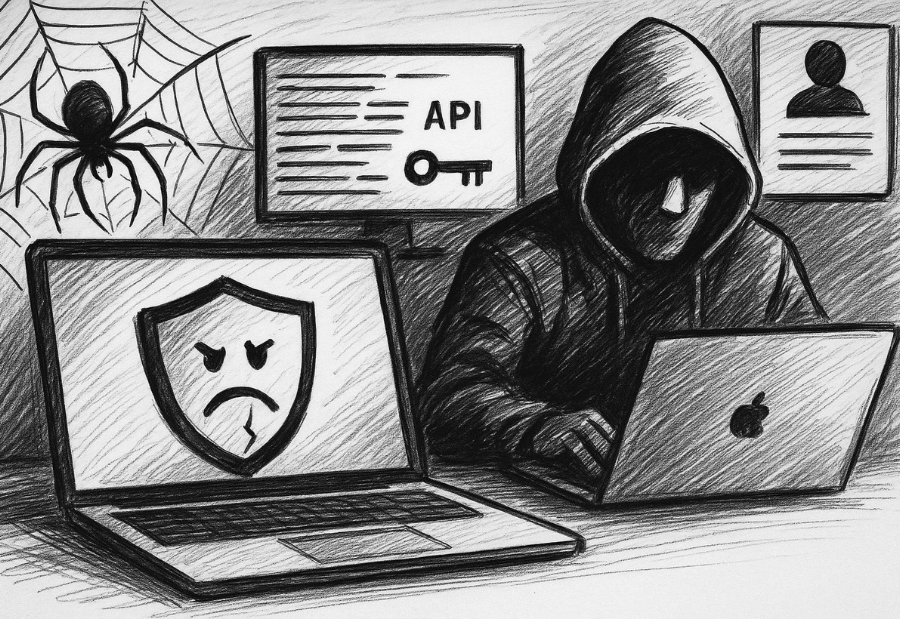In the digital theatre of artificial intelligence, a storm has broken. DeepSeek once hailed as a promising entrant in the AI frontier now finds itself at the centre of a chilling cybercrime saga. Over a million user records have reportedly fallen into the wrong hands, casting long shadows over data safety, AI ethics, and the fragile trust between machines and mankind.
DeepSeek breach, traced to severe lapses in security protocol, has revealed a treasure trove of vulnerabilities. It all began when vigilant researchers unearthed an openly exposed ClickHouse database, a vault meant to be sealed, instead left wide open. Within it lay chat transcripts, backend secrets, API tokens, and internal metadata, left unguarded for digital predators to exploit.
Cybersecurity minds have termed this breach a “perfect storm”, where outdated systems met poor configurations, creating a gateway to potential disaster. The exposed logs weren’t mere records; they held keys to admin-level access, allowing attackers to infiltrate deeper, escalate privileges, and siphon off confidential content.
Digging deeper, investigators also unearthed worrying flaws within DeepSeek’s infrastructure. Its iOS app, for instance, had disabled Apple’s App Transport Security (ATS), sending unencrypted data across cyberspace. Even worse, it relied on the old 3DES encryption method, a relic of weaker times with hardcoded keys that barely stood a chance against modern threats.
Other security oversights included SQL injection vulnerabilities and weak encryption mechanisms giving cyber attackers multiple open doors. What truly deepens the concern is that the AI model at DeepSeek’s core, DeepSeek-R1 failed 91% of jailbreak tests and 86% of prompt injection checks, reflecting a profound lack of resilience against adversarial exploits.
The breach doesn’t just end at technical failures. The stolen data has already started its journey through the darkest corridors of the internet. On the black markets of the dark web, everything from login credentials and API keys to private chats and personal user data is being sold like gold. Fake DeepSeek websites are now tricking unsuspecting users, launching phishing attacks and stealing crypto wallet access in real-time.
The worst of it? These stolen credentials include internal admin access and intellectual property that fuels the AI’s learning, exposing not just users but the company’s very soul to corporate espionage and digital fraud.
This breach offers more than just a cautionary tale, it’s a call to transformation. As AI technologies rise, the security structures guarding them must evolve just as swiftly. Experts now urge a shift from reactionary tactics to anticipatory defense, incorporating constant monitoring, agile testing, and holistic security strategies from day one.
Also read: Viksit Workforce for a Viksit Bharat
Do Follow: The Mainstream formerly known as CIO News LinkedIn Account | The Mainstream formerly known as CIO News Facebook | The Mainstream formerly known as CIO News Youtube | The Mainstream formerly known as CIO News Twitter |The Mainstream formerly known as CIO News Whatsapp Channel | The Mainstream formerly known as CIO News Instagram
About us:
The Mainstream formerly known as CIO News is a premier platform dedicated to delivering latest news, updates, and insights from the tech industry. With its strong foundation of intellectual property and thought leadership, the platform is well-positioned to stay ahead of the curve and lead conversations about how technology shapes our world. From its early days as CIO News to its rebranding as The Mainstream on November 28, 2024, it has been expanding its global reach, targeting key markets in the Middle East & Africa, ASEAN, the USA, and the UK. The Mainstream is a vision to put technology at the center of every conversation, inspiring professionals and organizations to embrace the future of tech.




